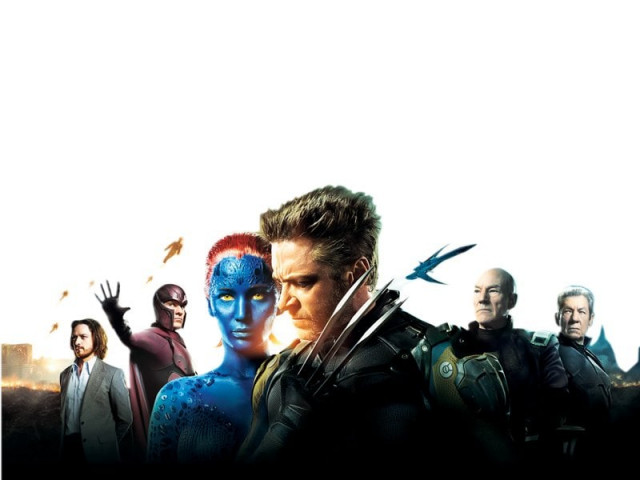Movie review: X-Men - winging the X-factor
X-Men: Days of Future Past perfects the past, present and the future.

X-Men: Days of Future Past perfects the past, present and the future.
The new X-Men movie, directed by Bryan Singer, could well be one of the best superhero movies ever made; not for its loyalty to the source material or for its special effects, but for its strong plot and character development. And adding to its strengths is the element of surprise. While the movie title is drawn from an extremely popular comic book storyline, the writers have taken a few liberties by drawing from other storylines just to keep everyone guessing.
For one, Wolverine does the time-travelling instead of Kitty Pride (Ellen Page), a predictable change given the popularity of the character played by Hugh Jackman. Once Wolverine has gone back in time, a number of elements from other comic book story arcs come into play, most notably a few minor elements from the Age of Apocalypse. The movie opens with scenes of concentration camps and the X-Men in a dystopian future, where Sentinels, giant mutant-killing robots, have essentially overrun humanity. Their mission is to eliminate all non-mutants as well to prevent them from having mutant children. This eugenics reference brings us to another key X-Men theme — civil rights. The comic books were greatly inspired by various civil rights movements in which the professor’s X-Men pursue the peaceful path and Magneto’s mutants the militant one.
What sets the mutant civil rights movement apart, however, is that they are not a group that is hated or feared because they form a weak minority or are considered inferior. They are feared instead because they are powerful. In the movie, this fear becomes the bane of humanity, inspiring a few to initiate a weapons programme that could potentially annihilate the world.
Once back in the ’70s, while Nixon is still in office, Wolverine must convince Charles Xavier (James McAvoy) to go back into professor mode to help stop an event that would lead to the creation of the Sentinels. Once the crew is assembled, a race against time ensues, both in the present and the past.
Aesthetically, the movie is a great watch — the computer-generated imagery and the visuals in general, especially the future fight sequences, leave the viewer afraid to blink. The flavour of the early ’70s, with direct and indirect references to the Vietnam War and other political issues, are worked seamlessly into the scenes. At the same time there is powerful dialogue, especially some of Ian McKellen and Patrick Stewart’s exchanges, as both are incidentally Shakespearean actors who have done fantastic jobs with the title character in Macbeth.
The movie is full of minor characters and references that viewers unfamiliar with the comics might not fully comprehend. But part of its beauty is that the significance of those references is minimal to the core plot. For the loyal fan however, these references make X-Men: Apocalypse worth waiting for. Incidentally, thanks to the introduction of time-travel and multiple timelines, many characters could be making a much anticipated return.
Rating: 5/5
Vaqas Asghar is an Islamabad-based senior sub-editor for The Express Tribune. He tweets @Vasghar
Published in The Express Tribune, Sunday Magazine, June 8th, 2014.



















COMMENTS
Comments are moderated and generally will be posted if they are on-topic and not abusive.
For more information, please see our Comments FAQ